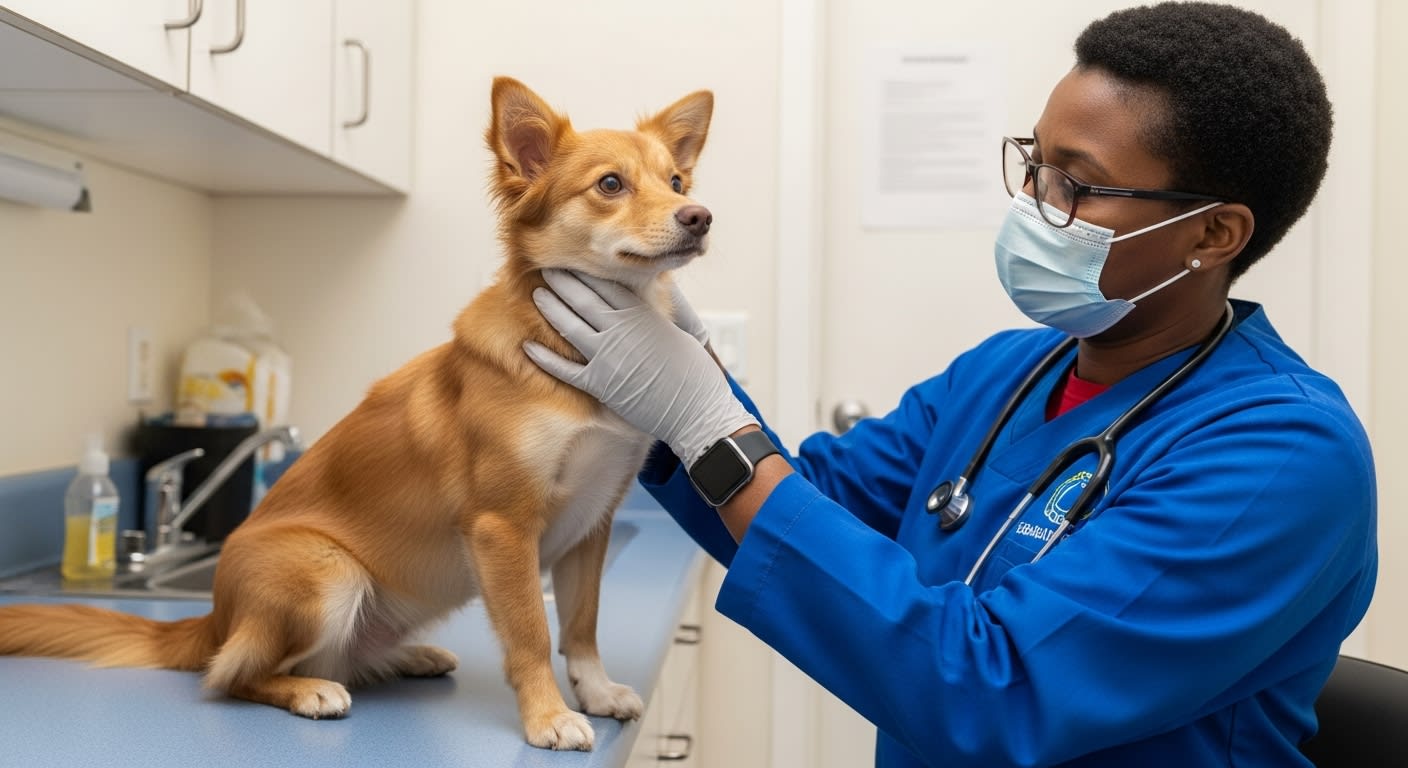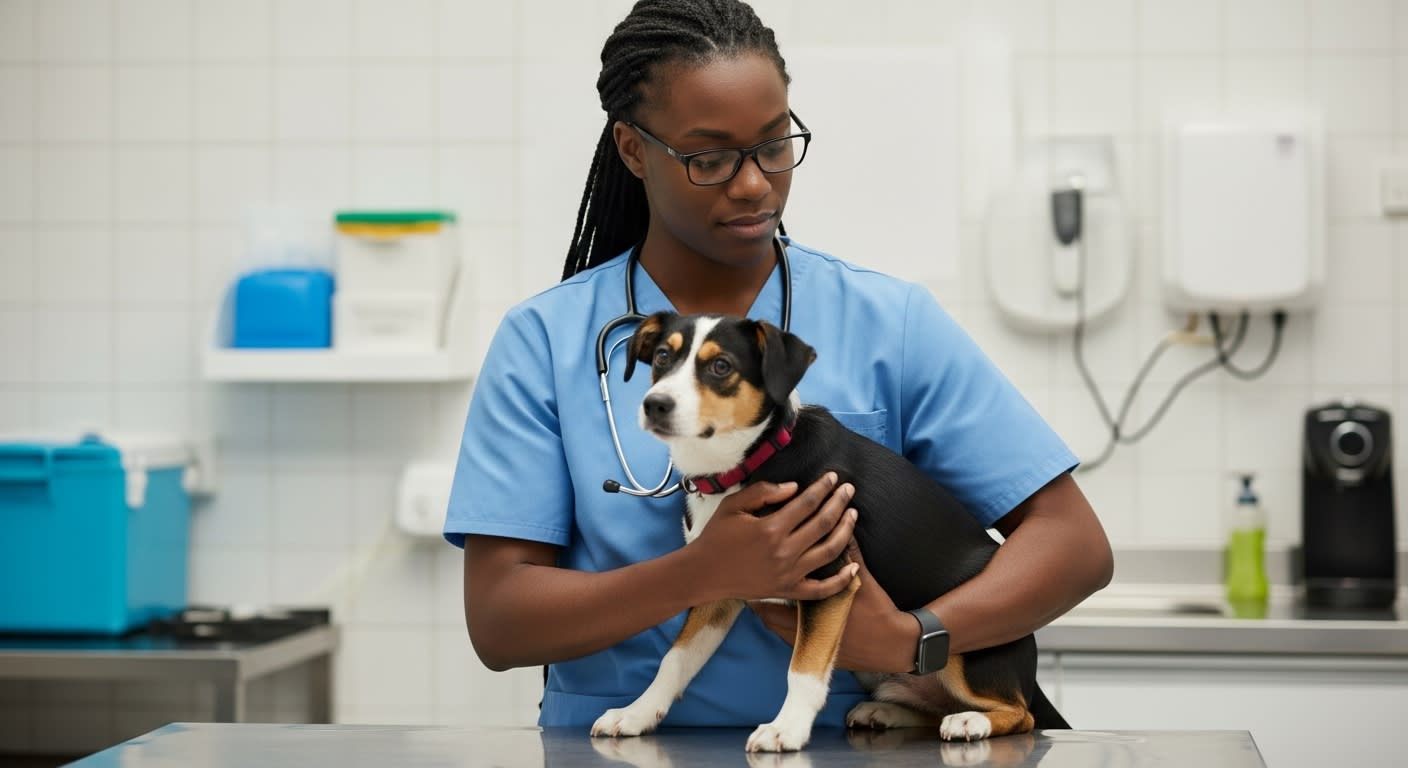Pet Health & Veterinary Care
Common Pet Health Problems In Nigeria And How To Prevent Them
Caring for a pet in Nigeria comes with unique challenges, from climate conditions to limited access to veterinary care in some areas. As a responsible pet owner, understanding the most common health issues your pet might face. Knowing how to prevent these problems can save you stress, time, and money.
Common Pet Health Problems in Nigeria
1. Parvovirus in Dogs
Parvovirus is a highly contagious viral disease affecting puppies and unvaccinated dogs. It causes severe vomiting, diarrhea (often bloody), and dehydration.
Prevention: Ensure timely vaccinations, especially during puppyhood, and keep pets away from infected animals.
Recommended Articles
2. Tick-Borne Diseases
Ticks thrive in Nigeria’s warm climate and can transmit diseases like babesiosis and ehrlichiosis. Symptoms include fever, lethargy, and loss of appetite.
Prevention: Regular tick control treatments, grooming, and keeping your pet’s environment clean.
3. Rabies
Rabies affects both pets and humans and is fatal once symptoms appear. It spreads through the bite of an infected animal.
Prevention: Annual rabies vaccination is essential. Keep pets from roaming unsupervised.
4. Feline Upper Respiratory Infections (URIs)
Common in cats, these infections cause sneezing, nasal discharge, and eye inflammation.
Prevention: Vaccinate your cat, maintain good hygiene, and reduce stress in multi-cat households.
5. Worm Infestations
Intestinal worms like roundworms, hookworms, and tapeworms can cause weight loss, diarrhea, and poor coat condition in pets.
Prevention: Regular deworming, safe feeding practices, and keeping the environment sanitary.
6. Heatstroke
Due to Nigeria’s hot weather, pets—especially brachycephalic breeds such as pugs, bull mastiff and Caucasian shepherds—are prone to overheating. Signs include excessive panting, drooling, and collapse.
Prevention: Provide shade, fresh water, and avoid intense activity during peak heat hours.
Why Prevention is Better than Cure
Preventing illnesses through vaccination, parasite control, and proper nutrition not only saves costs but also prolongs your pet’s life. Early detection through routine vet visits is a smart investment in your pet’s health.
Practical Disease Prevention Tips for Nigerian Pet Owners
Vaccinate on Schedule: Follow your vet’s recommended vaccination plan.
Maintain Regular Deworming: Every 3–6 months depending on pet type and exposure.
Feed Balanced Diets: Avoid low-quality or spoiled food that can cause illness.
Groom and Inspect Regularly: Helps spot early signs of skin issues or parasites.
Limit Street Exposure: Reduces risk of contagious diseases and injuries.
Preventing Pet Health Problems
MygotoVet connects you to licensed vets across Nigeria for in-clinic or online consultations. You can get guidance on vaccination schedules, nutrition plans, and early diagnosis without leaving your home.
Final Thoughts
Nigeria’s climate, environment, and access to healthcare can make pets vulnerable, but with the right preventive measures, you can ensure your furry friends live happy, healthy lives.
Frequently Asked Question
What is the most common pet disease in Nigeria?
Parvovirus in dogs and tick-borne diseases are among the most common.
How often should I take my pet to the vet?
At least once a month for healthy pets, and more frequently for seniors or those with chronic conditions.
How do I protect my dog from ticks in Nigeria?
Use tick preventives, groom regularly, and maintain a clean yard.
Can pets get heatstroke in Nigeria?
Yes. High temperatures can cause heatstroke—always provide shade and water.
What vaccinations do pets need in Nigeria?
Dogs: rabies, parvovirus, distemper; Cats: rabies, feline distemper, respiratory vaccines.
Are online vet consultations helpful for pet illnesses?
Yes. They’re ideal for advice, follow-ups, minor and non-emergency situations.
Animal Health & Blogs


